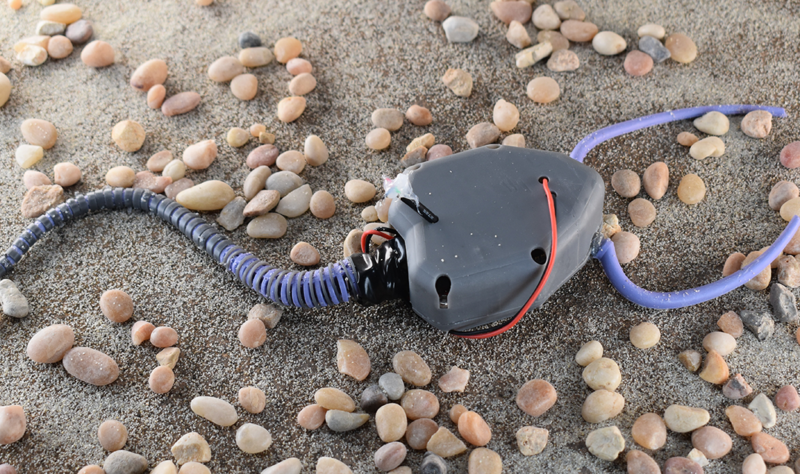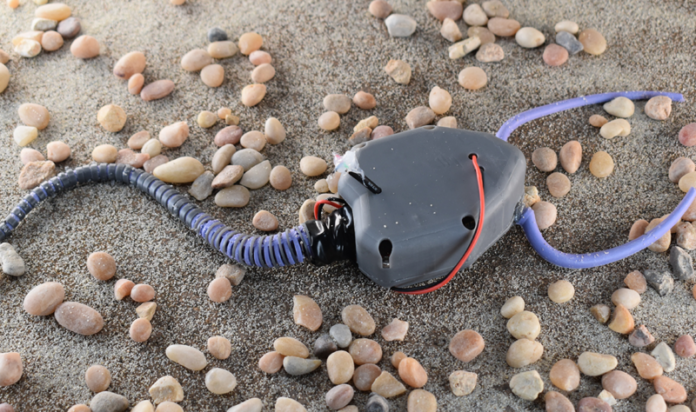
Enlarge (credit: Carnegie Mellon University)
Until now, when scientists and engineers have developed soft robots inspired by organisms, they’ve focused on modern-day living examples. For instance, we previously reported on soft robot applications that mimicked squid, grasshoppers, and cheetahs. For the first time, however, a team of researchers has now combined the principles of soft robotics and paleontology to build a soft-robot version of pleurocystitid, an ancient sea creature that existed 450 million years ago.
Pleurocystitids are related to modern-day echinoderms like starfish and brittle stars. The organism holds great significance in evolution because it is believed to be the first echinoderm that was capable of moving: It employed a muscular stem to move on the sea bed. But, due to a lack of fossil evidence, scientists never clearly understood how the organism actually used the stem to move underwater. “Although its life habits and posture are reasonably well understood, the mechanisms that control the movement of its stem are highly controversial,” authors of a previously published study focusing on the echinoderm stem note.
The newly developed soft-robot replica (also called the “Rhombot”) of a pleurocystitid has allowed researchers to decode the organism’s movement and various other mysteries linked to the evolution of echinoderms. In their study, they also claim that the replica will serve as the foundation of paleobionics, a relatively new field that uses soft robotics and fossil evidence to explore the biomechanical differences among life forms.
Read 12 remaining paragraphs | Comments
Ars Technica - All contentContinue reading/original-link]




